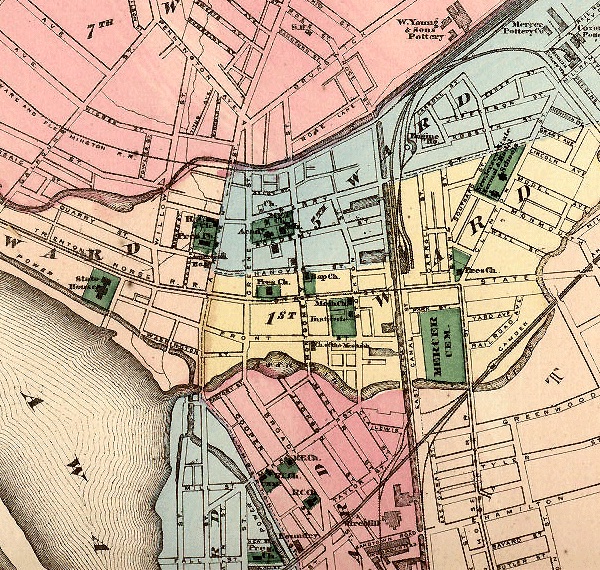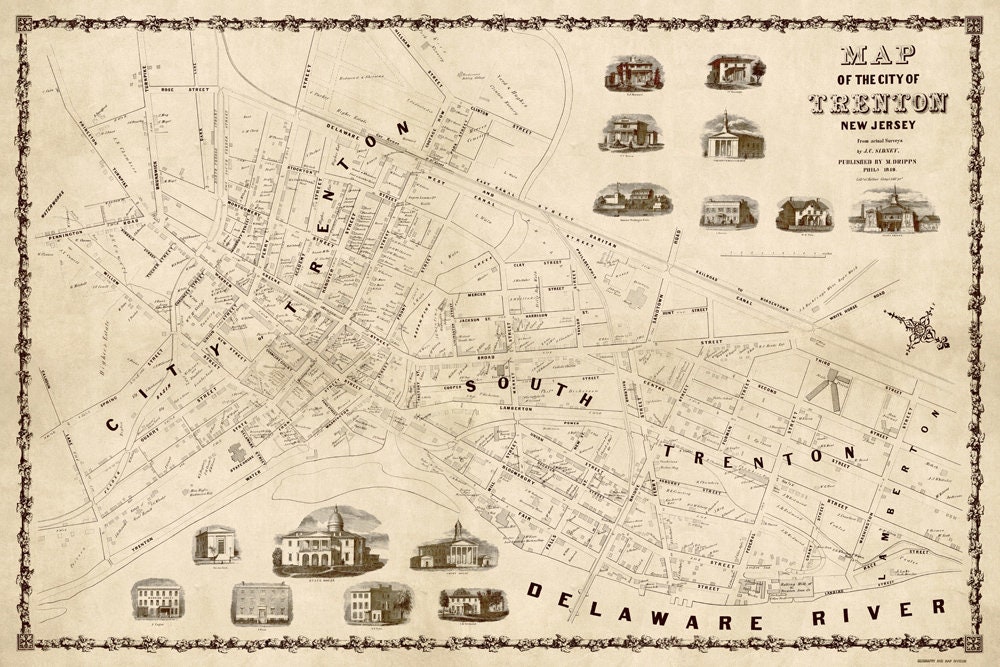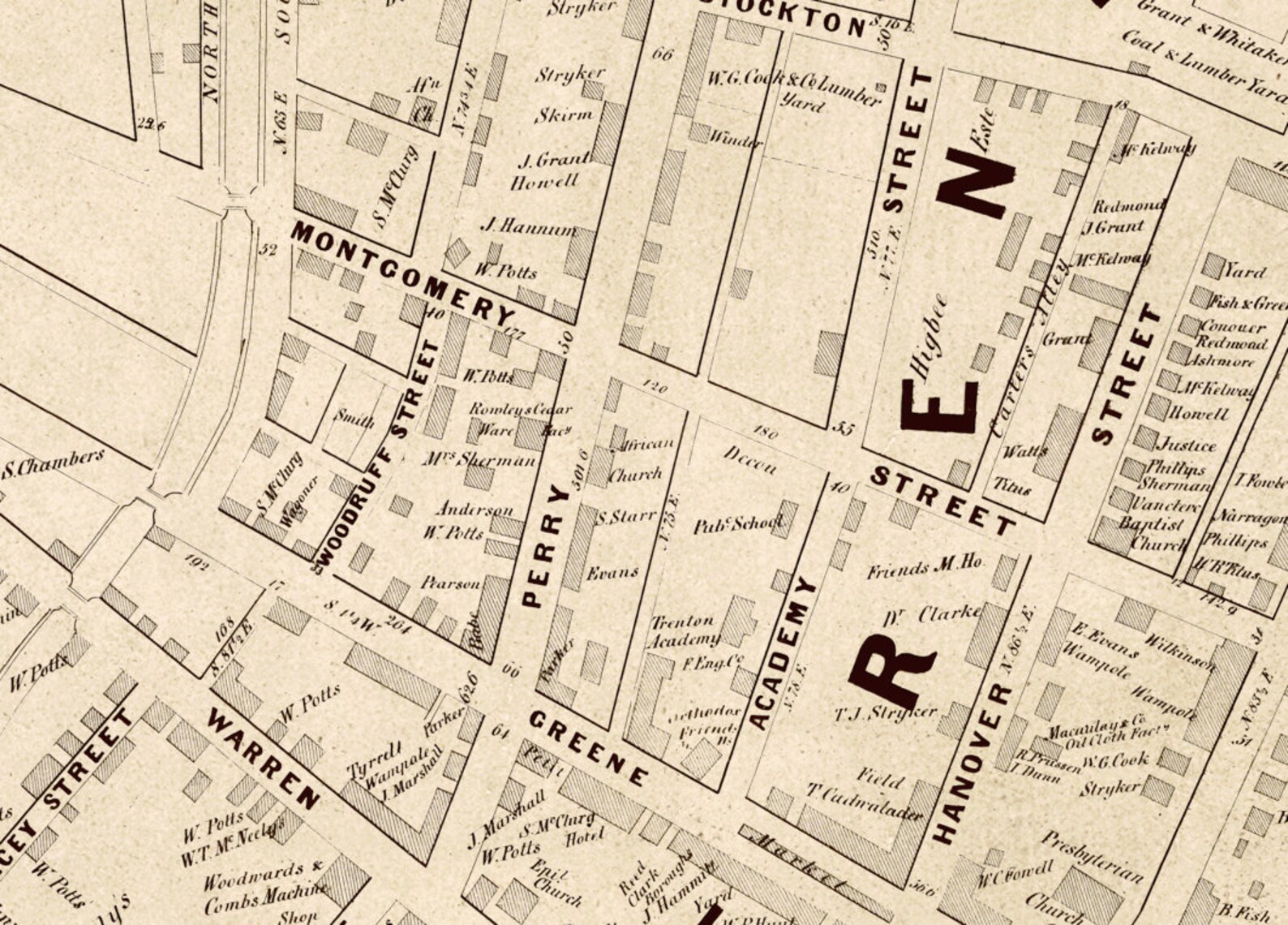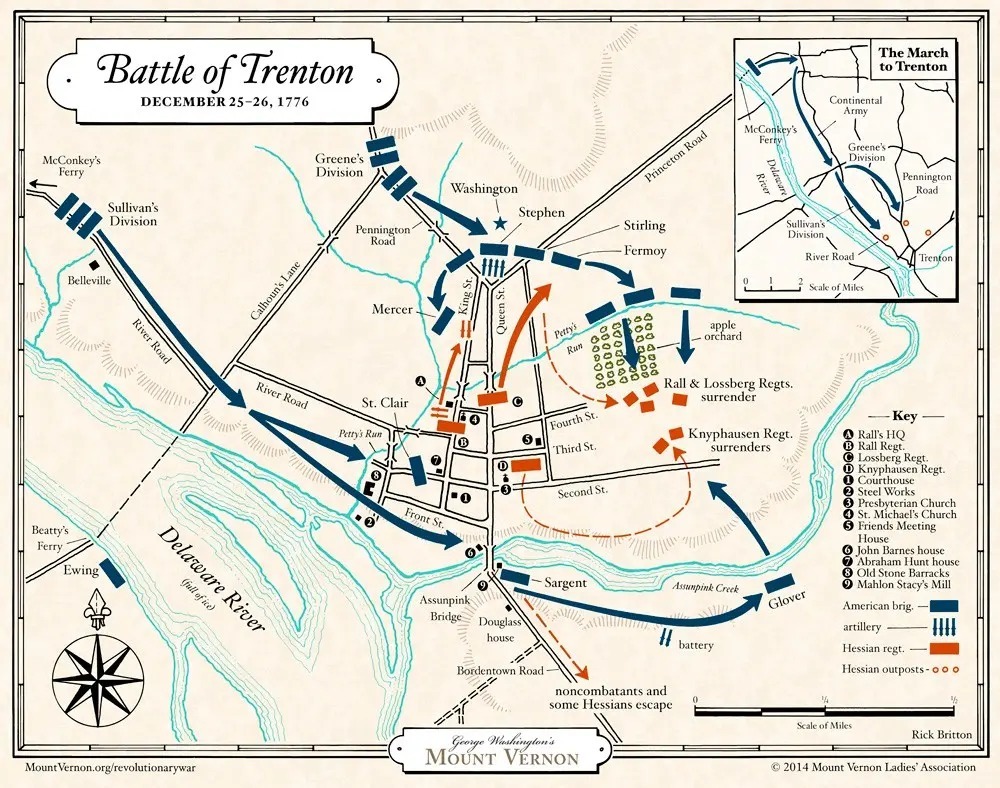Trenton on the Map: A City of History, Innovation, and Resilience
Related Articles: Trenton on the Map: A City of History, Innovation, and Resilience
Introduction
With great pleasure, we will explore the intriguing topic related to Trenton on the Map: A City of History, Innovation, and Resilience. Let’s weave interesting information and offer fresh perspectives to the readers.
Table of Content
Trenton on the Map: A City of History, Innovation, and Resilience

Trenton, the capital of New Jersey, holds a prominent position on the map of the United States, boasting a rich history, vibrant culture, and strategic location. Its significance extends beyond its political role, encompassing a tapestry of achievements in industry, art, and community development. This article delves into the multifaceted identity of Trenton, exploring its historical foundations, economic contributions, cultural attractions, and the challenges and opportunities it faces today.
A Historical Tapestry: From Colonial Beginnings to Modernity
Trenton’s story begins in the 17th century, when Dutch and Swedish settlers established trading posts along the Delaware River. Its strategic location, situated at the fall line where the river becomes navigable, made it an ideal center for commerce and transportation. In 1746, the town was officially established and named after William Trent, a prominent colonial merchant.
The American Revolution left an indelible mark on Trenton. The Battle of Trenton, a pivotal victory for the Continental Army under General George Washington, took place on December 26, 1776, solidifying the city’s place in American history. Trenton’s role in the Revolution further solidified its significance as a vital hub for the burgeoning nation.
The 19th century witnessed Trenton’s transformation into a major industrial center. The city’s proximity to raw materials, particularly iron ore, fueled the growth of its manufacturing sector. Trenton became renowned for its production of pottery, steel, and other industrial goods, attracting a diverse workforce and contributing significantly to the state’s economy.
A City of Industry and Innovation
Trenton’s industrial legacy continues to shape its identity. The city’s history is marked by the rise and fall of various industries, including the production of ceramics, textiles, and pharmaceuticals. While some industries have declined, Trenton continues to attract businesses in sectors such as technology, healthcare, and education.
The city’s commitment to innovation is evident in its thriving entrepreneurial ecosystem. Trenton’s entrepreneurial spirit is fueled by the presence of incubators, accelerators, and other support organizations that nurture startups and small businesses. The city is also home to several research and development centers, contributing to the advancement of knowledge and technology.
Cultural Gems and Artistic Expressions
Beyond its industrial heritage, Trenton boasts a vibrant cultural scene. The city’s museums, theaters, and art galleries offer a diverse range of experiences for residents and visitors alike. The Trenton City Museum, housed in a historic building, showcases the city’s rich history and culture, while the New Jersey State Museum presents a comprehensive collection of art, history, and science exhibits.
The Trenton Symphony Orchestra, a renowned musical institution, has been enriching the city’s cultural landscape for over a century. Its performances at the historic War Memorial Building are a testament to the city’s artistic legacy. Trenton’s vibrant arts community is also reflected in its numerous art galleries, studios, and community theaters, fostering creativity and expression.
Challenges and Opportunities
Like many urban centers, Trenton faces challenges related to poverty, crime, and infrastructure. The city’s industrial decline has left behind pockets of economic hardship, and its aging infrastructure requires significant investment. However, Trenton is also a city of resilience, with a strong community spirit and a determination to address its challenges.
The city is actively working to revitalize its downtown area, attracting new businesses and residents. The ongoing redevelopment efforts aim to create a more vibrant and welcoming urban environment, fostering economic growth and community engagement. Trenton’s strategic location, coupled with its historical significance and cultural richness, offers a unique opportunity for revitalization and prosperity.
FAQs
Q: What is Trenton’s most famous landmark?
A: Trenton’s most iconic landmark is the State House, the seat of the New Jersey state government. This historic building, constructed in the late 18th century, serves as a symbol of the city’s political and historical importance.
Q: What is the best way to get to Trenton?
A: Trenton is easily accessible by car, train, and bus. The city is situated near major highways and has a well-connected public transportation system. Trenton-Mercer Airport also offers limited commercial flights.
Q: What are some of the best things to do in Trenton?
A: Visitors to Trenton can explore its historical landmarks, including the State House, the Battle Monument, and the Old Barracks Museum. The city also offers a variety of cultural attractions, such as the Trenton City Museum, the New Jersey State Museum, and the Trenton Symphony Orchestra.
Q: What are the main industries in Trenton?
A: Trenton’s economy is diverse, with major industries including healthcare, technology, education, and manufacturing. The city is also home to several research and development centers, contributing to the advancement of knowledge and technology.
Q: What are the biggest challenges facing Trenton?
A: Trenton faces challenges related to poverty, crime, and infrastructure. The city’s industrial decline has left behind pockets of economic hardship, and its aging infrastructure requires significant investment.
Tips
- Explore the city’s rich history: Visit the State House, the Battle Monument, and the Old Barracks Museum to learn about Trenton’s significant role in American history.
- Immerse yourself in the city’s vibrant culture: Attend a performance by the Trenton Symphony Orchestra, explore the Trenton City Museum, or browse the city’s numerous art galleries and studios.
- Experience Trenton’s culinary scene: Sample the city’s diverse cuisine, from traditional American dishes to international flavors.
- Support local businesses: Explore Trenton’s unique shops and boutiques, fostering economic growth and community engagement.
- Engage with the community: Participate in local events and festivals, connecting with residents and experiencing the city’s vibrant spirit.
Conclusion
Trenton, a city steeped in history and brimming with potential, stands as a testament to the enduring spirit of America. Its past, shaped by industry, innovation, and resilience, continues to influence its present and future. As Trenton navigates the challenges and opportunities of the 21st century, its commitment to growth, community, and cultural vibrancy promises a bright future for this historic city on the map.








Closure
Thus, we hope this article has provided valuable insights into Trenton on the Map: A City of History, Innovation, and Resilience. We thank you for taking the time to read this article. See you in our next article!